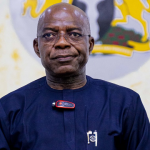The Chairman of the Federal Inland Revenue Service, Zacch Adedeji, has disclosed that Nigeria’s revenue generation has experienced a remarkable 411% increase over the past 16 months, rising from ₦711 billion in May 2023 to ₦3.64 trillion as of September 2025.
Despite the significant boost, he emphasized that borrowing remains a vital instrument for financing national growth and infrastructure, rather than covering recurrent expenses.
Adedeji made the disclosure during a press briefing organised by the presidential media team at the State House in Abuja.
He attributed the revenue growth to key reforms introduced under President Bola Tinubu’s administration, which include the streamlining of tax systems, reduction of burdens on small and medium enterprises, harmonisation of levies, and adoption of technology-based tools such as e-invoicing and data-driven audits to plug leakages and broaden the tax base.
According to the FIRS Chairman, non-oil tax revenue saw the most significant jump within the period, growing from ₦151 billion to over ₦1 trillion. Oil revenue also increased substantially from ₦96 billion to ₦644 billion. Value Added Tax (VAT) collections more than tripled, moving from ₦218 billion to ₦723 billion, while customs revenue rose sharply from ₦106 billion to ₦322 billion.
Further reinforcing the overall revenue performance, he noted that the Nigerian Upstream Petroleum Regulatory Commission reported remittances rising from ₦125 billion to ₦745 billion, while the Nigerian National Petroleum Company Limited contributed ₦111 billion in September 2025 alone.
In response to questions regarding continued borrowing amid revenue growth, Adedeji clarified that the government’s borrowing strategy has shifted significantly. He said borrowing is no longer used to finance salaries or subsidies but is now focused on infrastructure and productive investments intended to stimulate long-term economic expansion.
“Borrowing is not a problem, banks are part of our economic ecosystem. There is no country or an individual in the world that survives based on its own income. When the government borrows from the bank, we pay interest. It is from that interest they get their salary. It is from the salary that they pay taxes to the state government. It is from the difference between profit and lending that I collect taxes. So when you say you go for lending, it means you go for sustainability,” he explained.
He continued, “So, you borrow to beat higher costs for the future, you borrow because of a matching concept to sustain continuity when you borrow to do road infrastructure and you collect taxes from anybody using that road to pay their fair share. Borrowing is part of the economic plan and any country that will grow has to borrow because it is part of the ecosystem of a viable nation. So, when Mr. President said we have met our target or we are doing well in revenue, and they say why are we borrowing, is borrowing not part of the budget we submitted to the National Assembly? Are we borrowing outside what is approved?”
Echoing this position, President Bola Tinubu reaffirmed during his 2025 mid-year economic briefing that domestic resource mobilisation remains a top priority. He stressed that borrowing is acceptable as long as it supports investments capable of yielding returns sufficient for repayment.
“If I have revenue of 80 and I borrow 20 as planned, then I have met my expenditure target of 100. So, borrowing within the approved budgetary limits is normal and necessary to meet the fiscal needs. The problem arises when borrowing is excessive or unplanned, causing debt distress or macroeconomic instability,” the President stated.
He added, “Also, borrowing is not wrong as long as it is sustainable and used for productive sectors that generate economic growth, which in turn enhances revenue generation to repay the loans. Therefore, the approach of stopping printing money, ending monetisation of deficits, helps in controlling inflation and exchange rate pressures. It shows fiscal discipline by relying on actual revenue collection and planned borrowing. This deliberate effort supports macroeconomic stability and fosters investors’ confidence in the economy. In summary, borrowing as a component of the budget is legitimate, provided it aligns with fiscal plans, is transparently managed and repayment commitments are respected.”
Adedeji also noted that the government is actively addressing inherited debts, including obligations related to overdraft facilities from the Central Bank of Nigeria, in a bid to stabilise Nigeria’s fiscal environment and enhance investor confidence.
Looking ahead, the FIRS Chairman revealed that further reforms are on the horizon. These include harmonisation of subnational levies to curb multiple taxation, the introduction of a presumptive tax regime for the informal sector, and gradual reduction of corporate tax rates to stimulate private sector investment.
He also hinted at ongoing constitutional reform efforts to clearly define revenue allocation responsibilities between federal and state governments, in line with broader objectives of strengthened fiscal federalism.










